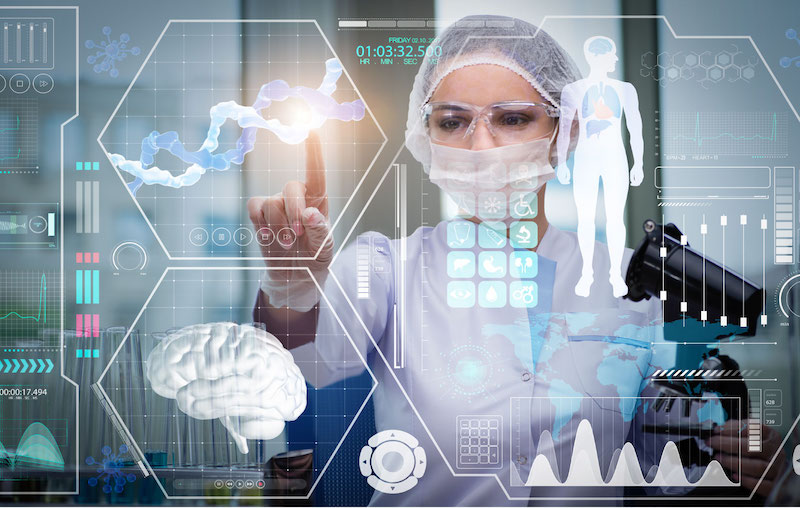
AI Powers New Medical Discoveries: Decoding Genetic MysteriesAI Powers New Medical Discoveries: Decoding Genetic Mysteries The advent of artificial intelligence (AI) has revolutionized the field of medicine, unlocking unprecedented capabilities for genetic research and discovery. AI’s ability to process vast amounts of data, perform complex computations, and identify patterns has propelled medical advancements, leading to breakthroughs in diagnosing diseases, predicting treatment outcomes, and uncovering the genetic roots of complex conditions. Decoding the Genetic Code with AI AI algorithms can analyze vast genomic datasets, identifying genetic variants that are associated with specific diseases or traits. By correlating genetic data with patient outcomes, researchers can uncover potential genetic causes of conditions such as cancer, Alzheimer’s disease, and heart disease. AI’s computational power allows for the identification of rare and complex genetic variants that may have been missed by traditional methods of analysis. Precision Medicine and AI AI plays a crucial role in enabling precision medicine, where treatments are tailored to an individual’s unique genetic profile. By understanding the genetic basis of a disease, doctors can select the most effective therapies and predict the likelihood of adverse effects. AI assists in interpreting genetic test results, providing actionable insights for personalized treatment decisions. Early Disease Diagnosis and Prevention AI algorithms can analyze genetic data to identify individuals at risk for developing certain diseases. Early detection is critical for improving treatment outcomes and preventing disease progression. AI models can predict the likelihood of disease onset based on genetic markers, enabling proactive interventions and lifestyle modifications. Drug Discovery and Development AI accelerates the drug discovery and development process by identifying novel drug targets and predicting the efficacy and safety of potential treatments. AI algorithms can screen millions of chemical compounds to identify molecules with therapeutic potential. By simulating disease mechanisms and patient responses, AI models can reduce the time and cost associated with clinical trials. Unlocking the Power of Big Data The enormous volume of genomic and medical data now available presents both challenges and opportunities for researchers. AI provides the tools to harness this “big data” effectively, extracting meaningful insights and uncovering hidden patterns that would otherwise remain undiscovered. Collaborative research projects and data sharing initiatives further enhance AI’s capabilities in medical discovery. Conclusion The integration of AI into genetic research has opened a new frontier in medical innovation. AI empowers researchers to decode genetic mysteries, enabling early disease diagnosis, precision medicine, and breakthrough drug discoveries. As AI continues to evolve, its potential to revolutionize healthcare and improve human health will only grow. By harnessing the power of genetic data, we can unlock the secrets of the human genome and pave the way for a future where diseases are detected earlier, treated more effectively, and prevented altogether.
Posted inNews